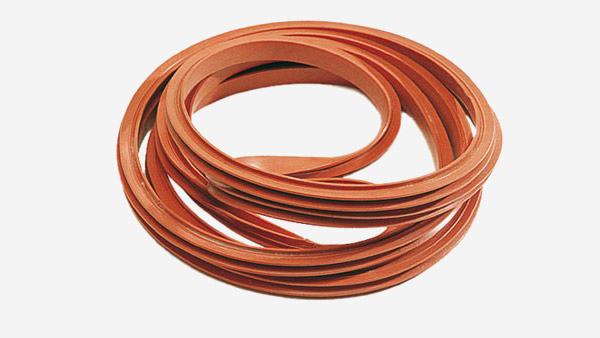Autoclave Gaskets: A Critical Component for High-Pressure Sealing
Autoclave gaskets are an integral part of sealing solutions in high-pressure and high-temperature environments. These gaskets ensure airtight and watertight seals, making them indispensable for autoclaves used in industries such as healthcare, food processing, aerospace, and manufacturing. At Rubber Seals and Gaskets, we provide premium autoclave gaskets that deliver durability, reliability, and performance.
This article explores the features, benefits, materials, and applications of autoclave gaskets, offering a comprehensive guide for professionals seeking the best sealing solutions.
What Are Autoclave Gaskets?
Autoclave gaskets are specially designed sealing components used in autoclaves—pressurized devices for sterilization or industrial curing. These gaskets form a secure seal between the lid and chamber, ensuring the containment of steam, air, or other gases under high pressure and temperature.
Key Features of Autoclave Gaskets
Autoclave gaskets are engineered to withstand the demanding conditions of autoclave operations. Key features include:
Heat Resistance
- Withstand high temperatures, typically up to 250°C (482°F) or more.
Pressure Tolerance
- Handle pressures required for sterilization and curing processes.
Chemical Resistance
- Resist corrosion from steam, water, and other sterilization chemicals.
Durability
- Offer long service life even under repeated usage.
Flexibility
- Maintain an airtight seal even under varying thermal conditions.
Benefits of Autoclave Gaskets
Autoclave gaskets provide several advantages, ensuring efficient and safe operations:
1. Enhanced Sterilization
- Airtight sealing ensures proper sterilization in medical and food industries.
2. Operational Safety
- Prevent leaks that could compromise the autoclave’s performance or pose safety risks.
3. Cost-Effectiveness
- Durable materials reduce the frequency of replacements, lowering maintenance costs.
4. Customization
- Can be tailored to fit unique autoclave designs, enhancing compatibility.
5. Environmentally Friendly
- Certain materials are recyclable, supporting sustainable operations.
Common Materials for Autoclave Gaskets
Material selection is critical for ensuring the gasket performs optimally under autoclave conditions. Popular materials include:
1. Silicone Rubber
- Properties: High heat resistance, flexibility, and durability
- Applications: Ideal for medical and food-grade autoclaves
2. EPDM (Ethylene Propylene Diene Monomer)
- Properties: Excellent resistance to steam, hot water, and ozone
- Applications: Suitable for industrial autoclaves
3. Viton® (FKM)
- Properties: Exceptional chemical and temperature resistance
- Applications: Used in environments with aggressive sterilization chemicals
4. Teflon® (PTFE)
- Properties: Non-stick surface, high temperature, and chemical resistance
- Applications: High-pressure curing processes
5. Neoprene Rubber
- Properties: Good resilience and moderate heat resistance
- Applications: Economical option for lower-temperature autoclaves
Applications of Autoclave Gaskets
Autoclave gaskets are critical in various industries, including:
1. Healthcare and Pharmaceuticals
- Ensure airtight seals in sterilizers for medical instruments and lab equipment.
2. Food and Beverage Industry
- Support high-pressure cooking and sterilization processes for packaging.
3. Aerospace and Composites
- Aid in curing composite materials and parts used in aircraft manufacturing.
4. Rubber and Plastics Industry
- Used in vulcanization and molding processes requiring precise temperature control.
5. Research and Laboratories
- Maintain sterile environments in autoclaves used for biological and chemical research.
Custom Autoclave Gaskets
At Rubber Seals and Gaskets, we understand that no two autoclave systems are alike. That’s why we offer custom autoclave gaskets to meet specific requirements. Our capabilities include:
Material Selection Assistance
- Help you choose the right material based on your operational conditions.
Custom Dimensions
- Design gaskets to fit unique shapes and sizes.
High-Quality Standards
- Ensure compliance with industry regulations and certifications.
Rapid Prototyping
- Deliver prototypes quickly for testing and validation.
How to Maintain Autoclave Gaskets
Proper maintenance extends the life of your autoclave gaskets and ensures optimal performance:
Regular Inspection
- Check for signs of wear, cracks, or deformation.
Cleaning
- Clean gaskets with mild soap and water to remove residue.
Storage
- Store gaskets in a cool, dry place away from direct sunlight.
Timely Replacement
- Replace gaskets showing significant wear to avoid operational issues.
Why Choose Rubber Seals and Gaskets for Autoclave Gaskets?
With decades of experience, Rubber Seals and Gaskets is a trusted name for high-quality sealing solutions. Here’s why customers choose us:
Premium Materials
- We use only top-grade materials for superior performance.
Customization
- Tailored solutions to meet your unique requirements.
Expertise
- Our team offers technical guidance to ensure the right fit for your application.
Competitive Pricing
- Cost-effective solutions without compromising on quality.
Global Reach
- Serving industries worldwide with reliable sealing products.
Conclusion
Autoclave gaskets are indispensable for maintaining high-pressure and high-temperature sealing in a variety of applications. Their ability to deliver reliable performance under extreme conditions makes them a vital component in industries ranging from healthcare to aerospace.
If you’re looking for high-quality, customizable autoclave gaskets, trust Rubber Seals and Gaskets to meet your needs. Contact us today to learn more about our products and discover the best sealing solutions for your operations.

FAQs
Silicone, EPDM, Viton®, and PTFE are popular choices due to their heat and chemical resistance.
The replacement frequency depends on usage and operating conditions. Regular inspections can help determine when a gasket needs replacement.
Yes, autoclave gaskets can be custom-designed to fit specific dimensions and operational requirements.
Ensure optimal sealing with premium autoclave gaskets from Rubber Seals and Gaskets—where quality meets reliability!
